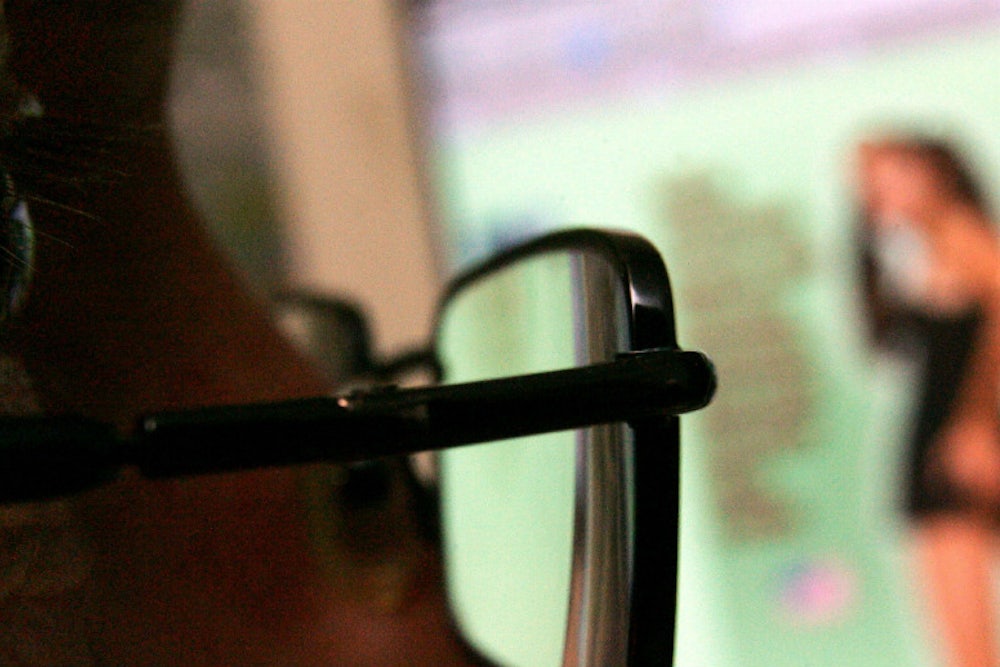In a hopeless government attempt to control what Britons get off on, new rules regulating the U.K. porn industry have come into force this week. The Audiovisual Media Services Regulations 2014 imposes restrictions on the content of pornography made and sold within the U.K.—and it does so with a perplexing ignorance about the realities of modern technology.
British porn producers and consumers will now be subject to some of the harshest restrictions anywhere in Europe, with speculation that this is only the beginning. Video-on-demand content produced or sold in the U.K. is no longer permitted to show a vague and arbitrary list of explicit acts.
Physical or verbal abuse, depictions of non-consensual sex, strangulation, and urination in sexual context are all included on the list. Only “gentle” spanking, whipping, and caning is allowed, though where exactly the government draws the line between the gentle and the excessive on this particular matter is unclear.
Some of the acts facing on-screen censorship are especially popular in LGBT and BDSM communities, and participants argue that taking part in them poses no risk to consenting adults. Much more taboo sexual activities such as bukkake (a large group of men climaxing all over the same woman) and paraphilic infantilism (dressing up and being treated like a baby for sexual pleasure) are seemingly not addressed by this new legislation.
Not only is the law misguided, it’s also deeply sexist. Showing female ejaculation on screen has been outlawed completely, while male ejaculation (on the face, breasts, feet, backside, wherever) faces no direct restrictions. Is female ejaculation really so vulgar and explicit that people shouldn’t see it, in pornography or anywhere else?
Restrictions on fisting, facesitting, and which objects can be inserted into an adult’s body are included too. Regulating depictions of these acts—those relating directly to female sexual pleasure—make it seem like society is at risk from exposure to women’s enjoyment of sex, at least according to the government.
Protecting under-18s is supposedly at the heart of these regulations—preventing children from accessing “harmful material” that may “seriously impair” them. The peculiar piece of legislation only impacts paid-for, video-on-demand (VoD) content, so the idea that it in itself will have any real impact on the kind of porn that U.K. consumers—of age or otherwise—regularly access is ridiculous.
It’s not young people who are subscribing and accessing paid-for content online; these kinds of sites normally require a credit card or Paypal account to get past their paywalls. The new rules do nothing to address free, non-regulated content produced in other countries and uploaded to global streaming websites. So it begs the question, what’s the point of all this?
After the quiet ushering through of the Bill—seemingly without public surveys or much independent research to back it up—some have expressed concerns that this law change is the first step towards restricting access to “undesirable” foreign websites, with huge implications for the freedom of information online. With no concern for consent within or enjoyment of these sexual practices, the government appears to be legislating its own moral judgements on what is deemed acceptable in British society.
As legal adviser for Backlash Myles Jackman puts it: “Pornography is the canary in the coalmine of free speech: it is the first freedom to die. If this assault on liberty is allowed to go unchallenged, other freedoms will fall as a consequence.”
This piece was originally published in the New Statesman.
